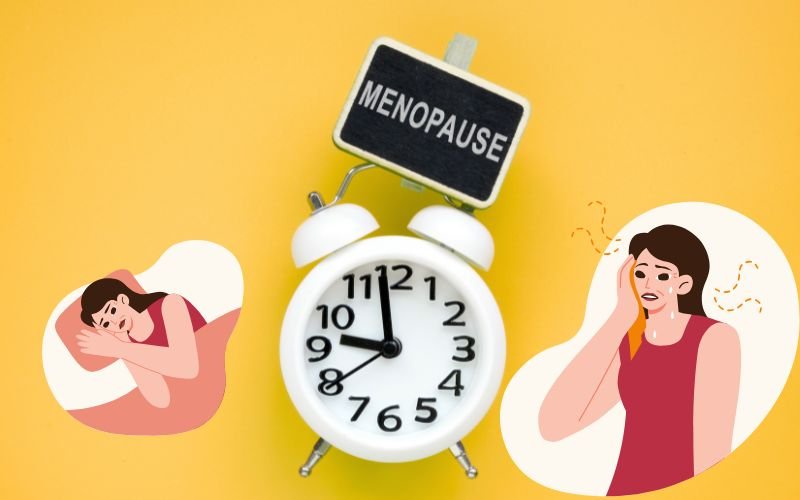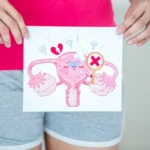a major change in a woman’s body. It happens when the ovaries stop making eggs and periods stop. Some women reach menopause at the usual time. Others reach it early. The changes can affect health, mood and daily life. This article shared by a gynaecologist in Delhi at Gyne clinic in Rohini explains the difference between early menopause and normal menopause. It lists common menopause symptoms, covers bleeding after menopause and whether that always means cancer. It also reviews treatment options in Delhi.
How Gynaecology doctors define early and normal menopause?
Normal menopause normally occurs at the age of 45 to 55 years. Early menopause refers to periods that terminate before 45 years. When the periods cease before the age of 40, doctors refer to it as premature menopause or premature ovarian insufficiency. The diagnosis is done using medical tests and the patient’s history with the obstetrics and gynae specialists. Such age groups are useful in directing tests and care.
Common signs of Menopause in Women?
Many women notice changes in their cycles. Periods may get irregular. The body may feel hot suddenly. Mood changes. Sleep break. Vaginal dryness may make sex painful. These are common menopause symptoms and they can begin before periods fully stop. Hot flushes are one of the most common and distressing symptoms. Night sweats may disturb rest.
Why is bleeding after menopause a red flag?
The definition of bleeding after menopause is any vaginal bleeding that happens after 12 months when a woman has not gone through a period. This is a symptom that should be examined. Blood loss in a postmenopausal woman is not serious most of the time; however, it is a symptom of cancer. Gynaecologists suggest that any post menopausal bleeding must be diagnosed. In many of the cases, benign causes (polyps or thinning tissue) are detected by tests, but a doctor check to make sure there is no possibility of endometrial cancer.
Is bleeding after menopause always cancer?
Short answer: no. Bleeding after menopause is not always cancer. Many causes are non-cancerous. Common causes include vaginal atrophy, polyps, fibroids or endometrial hyperplasia. Still because cancer is possible doctors investigate quickly.
How doctors test for causes of bleeding?
A gynaecologist will take a clear history and do a pelvic exam. A transvaginal ultrasound checks the lining of the uterus. If needed an endometrial biopsy is required. In some cases, hysteroscopy helps find a polyp or other lesion. These tests are common in Obs and Gynae clinics in Delhi.
Stages of menopause explained
The stages of menopause move in steps.
- First is perimenopause. This stage has irregular cycles and symptoms.
- Then comes menopause when periods stop for 12 months.
- After that is postmenopause, the years that follow.
Each stage brings different needs. Perimenopause can last months or years.
Health risks linked to early Menopause
At an earlier age, premature menopause is dangerous to health. Estrogen may make the bones weak and predispose to heart diseases because of reduced levels. Women are exposed to osteoporosis and heart-related complications due to early or premature menopause. Fertility ends earlier. There are also emotional and social effects.
Best Menopause Treatment in Delhi that work
A good medical treatment is hormone replacement therapy for most women who complain of irritating symptoms. HRT is used to take the place of estrogen and in some cases progesterone. It can ease hot flushes protect bones and reduce vaginal dryness. In some cases, non-hormonal medicines or vaginal estrogen help specific problems. Talk to a gynaecologist in Delhi about the best choice for you.
Natural Menopause Treatments that really work
Many women seek natural menopause treatments. Some lifestyle changes help. It has been shown that regular exercise, healthy diet, sleep and cessation of smoking alleviate symptoms and improve health.
Fertility and family planning choices after early menopause
If menopause or POI occurs early, fertility may end. Some women choose egg freezing or donor eggs earlier in life to preserve options. Fertility counselling helps clarify choices. If childbearing is complete, focus shifts to long term health and symptom control. A specialist in Obs and Gynae can guide fertility and menopause care together.
If you have early menopause, troubling hot flushes menopause, or any bleeding after menopause, you ned to consult a gynae asap. Manasvi Healthcare provides menopause care and patient support in Delhi, with a team trained to guide testing, treatment and follow up. For personalised care in Delhi, consider gyne clinics like Manasvi Healthcare for evidence-based menopause support and guidance.




